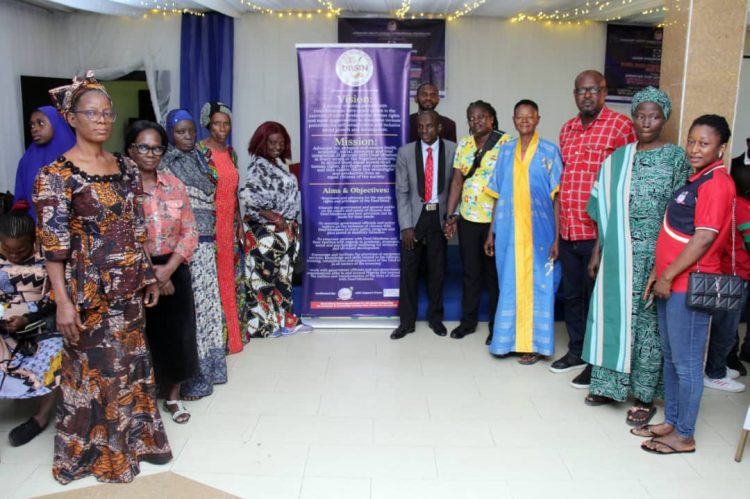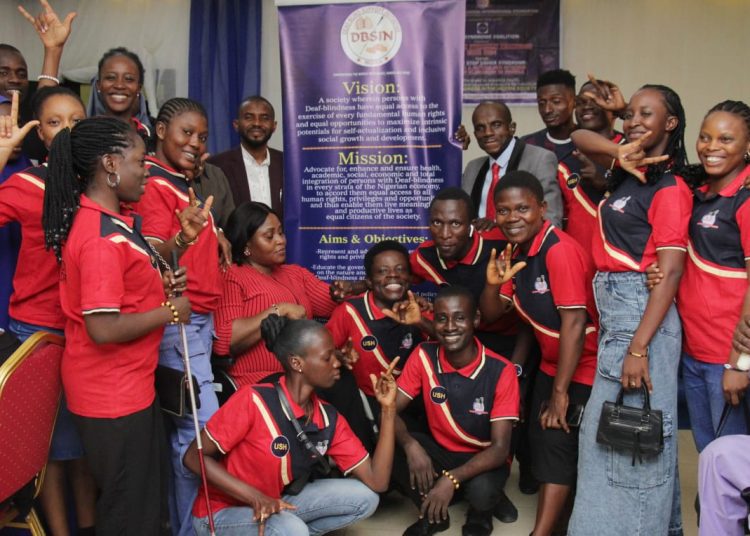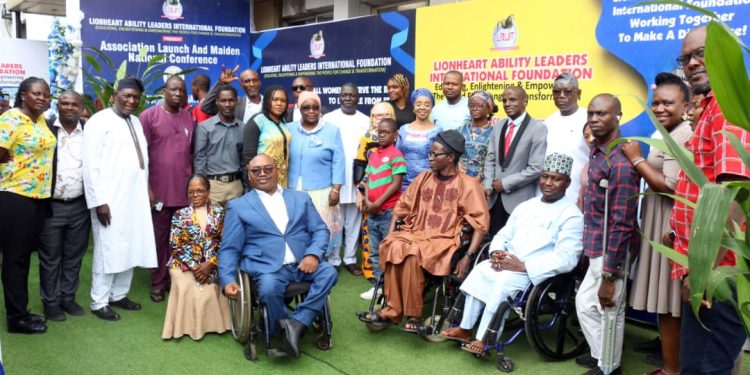The Lionheart Ability Leaders International Foundation (LALIF) has launched the first national association for persons with Deaf-Blindnes in Nigeria called Deaf-Blind Support Initiative Nigeria.
The Association was launched, with support from Disability Rights Fund (DRF), at a Conference between October 9 to 11, 2024 with the theme “Out of The Darkness of Marginalization: Nothing About Disabilities or Special Education Any Longer Without Deaf-blindness.”
The conference also served as a platform to raise awareness about disability rights, particularly focusing on persons with Deaf-Blindness who are often marginalized.
The event commenced with a welcome address from Mr. Kolawole Olugodi, the chief host and Chairman of LALIF’s board of trustees.

In his opening remarks, Olugodi expressed gratitude to attendees from the educational sector, policymakers, and advocacy groups. “I hope that by the end of this event, those who were previously unaware will understand the specific diseases that affect hearing and sight,” he stated.
Following Olugodi’s address, Miss Oluwabukolami Badmus, a project officer at LALIF, took the stage for a reflective moment. She highlighted the organization’s transition to digital platforms during the COVID-19 pandemic to advocate for disability rights.
“Our efforts gained momentum last year, thanks to the government’s increased focus on inclusive initiatives,” Badmus explained. She emphasized the importance of collaboration with individuals who are Deaf, hard of hearing, or visually impaired, stressing that accessibility is paramount.
To combat the challenges faced by individuals with disabilities, Badmus said, “we established our organization to advocate for their rights,” she noted. Reflecting on their journey, she recalled their first rally in 2020, which was aimed at raising awareness about disability inclusion. “We visited various organizations to share our message and promote equality,” she shared.

The conference also included a discussion on Usher Syndrome, delivered by Mrs. Adejoke Opeyemi-Ogungbire, the Founding Executive Director of the Desire Health Inclusive Organization (DHIO). Using findings from a recent baseline survey conducted by LALIF and DHIO, she highlighted the widespread ignorance among medical practitioners about the leading causes of deaf-blindness.
“This ignorance poses a significant risk of increased incidence among future generations,” Opeyemi-Ogungbire warned. She stressed the need for training in genetic testing and counselling to improve the identification and management of Usher Syndrome.
The conference also featured lectures aimed at enlightening government officials and policymakers about the needs of citizens with deaf-blindness. Professor Isuwa Jurmang from the University of Jos, and a member of the LALIF Board of Trustees outlined how individuals with disabilities have historically been victimized and marginalized in society, especially before the arrival of colonial influences.
“Efforts to address the needs of persons with disabilities have escalated with the rise of advocacy and civil society organizations,” Jurmang noted.

Despite advancements in disability inclusion, Jurmang pointed out that individuals with deaf-blindness still experience significant societal exclusion. “These individuals face unique communication challenges and a lack of awareness of their existence,” he said, calling for increased understanding and support from policymakers.
He emphasized the importance of consulting with deaf-blind individuals and their families to better grasp their needs and integrate them into disability-related programs.

The economic implications of neglecting the needs of individuals with disabilities were also highlighted. “Failing to provide for their inclusion leads to a loss of valuable manpower and hampers our nation’s GDP,” Jurmang cautioned. He advocated for a comprehensive and inclusive disability agenda backed by political willpower to avoid these avoidable socio-economic consequences.
Throughout the conference, parents shared their experiences and expressed gratitude for LALIF’s advocacy efforts.
Comments included appreciation for improved access to education and support for families with visually impaired children. Many attendees expressed a desire for continued collaboration to ensure equal opportunities and resources for their children.

